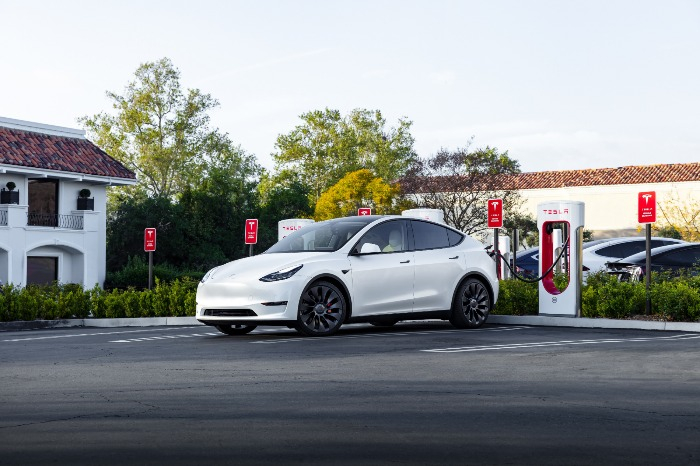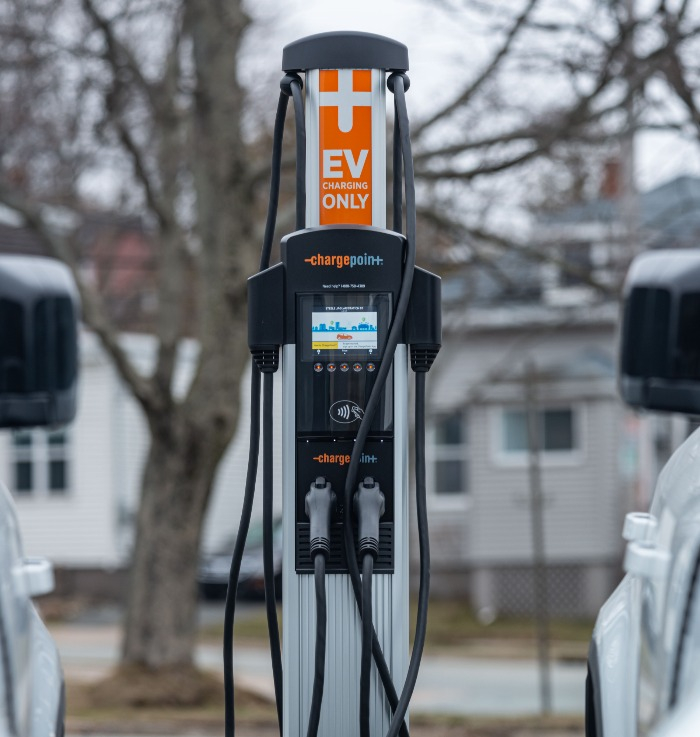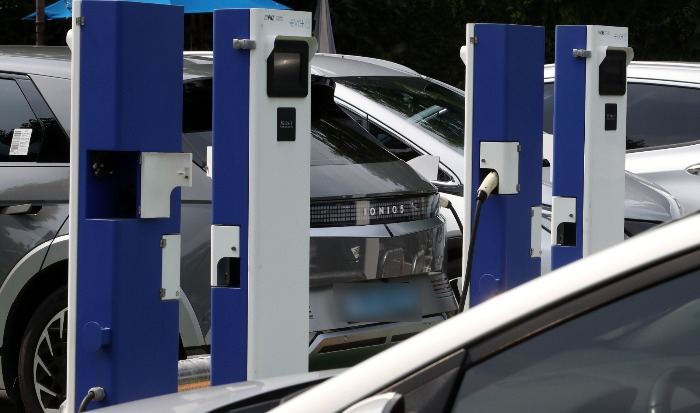Electric vehicles
Hyundai Motor eyes EV charger alliance in US to take on Tesla
The seven-member joint venture plans to install fast chargers to challenge Tesla's supercharger network
By Jul 27, 2023 (Gmt+09:00)
2
Min read
Most Read
LG Chem to sell water filter business to Glenwood PE for $692 million


Kyobo Life poised to buy Japan’s SBI Group-owned savings bank


KT&G eyes overseas M&A after rejecting activist fund's offer


StockX in merger talks with Naver’s online reseller Kream


Mirae Asset to be named Korea Post’s core real estate fund operator



South Korea’s Hyundai Motor Co. and Kia Corp. are planning to join BMW, General Motors, Honda Motor, Mercedes-Benz and Stellantis to collectively invest at least $1 billion and build thousands of electric vehicle chargers in the US, the Wall Street Journal reported on Wednesday.
The move is seen as an effort to ease a shortage of EV charging spots and slam the brakes on Tesla Inc.’s growing dominance in the EV market, driven by its supercharger network, accounting for 60% of the EV charger market in the US.
In the absence of a standardized EV charging system, Tesla’s charging network is the industry’s largest and a main pull to EV buyers.
The seven-member group is aiming to install around 30,000 fast chargers in urban and highway areas, more than Tesla’s fast charging stations of around 18,000.

The seven carmakers’ joint venture to be formed in the US is modeled after a similar charging company in Europe, Ionity, established in 2017 by the Volkswagen Group and many of the abovementioned automakers, including the Hyundai Motor Group.
They will make equal contributions to the JV, which is said to qualify for the US government subsidies.
TWO TYPES OF CHARGERS
They plan to install each type of chargers – Tesla’s, known as the North American Charging Standard (NACS); and the Combined Charging System (CCS), used by other car companies.
Some of the new chargers to be built by the JV will be operational by mid-2024, according to the newspaper.
The CCS had been the EV charger standard until Tesla introduced its proprietary NACS in 2021, alongside the Model S launch.

In a bid to expand their market presence, some EV makers are also adopting the NACS system, which will lead them to switch to Tesla-style charging hardware on their EVs.
Nissan Motor, Ford, GM, Rivian Automotive, Volvo and Mercedes have made deals with Tesla to give their customers partial access to the latter’s charging network.
Hyundai and Kia have not decided whether or not to follow suit.
Citing data from the federal National Renewable Energy Laboratory, the group of seven automakers said 182,000 fast chargers will be needed across the US by 2030, up from around 32,000 currently.
Write to Sungsu Bae at baebae@hankyung.com
Yeonhee Kim edited this article.
More to Read
-
 Electric vehiclesSK Signet to launch Tesla-compatible EV chargers in 2023
Electric vehiclesSK Signet to launch Tesla-compatible EV chargers in 2023Jun 15, 2023 (Gmt+09:00)
1 Min read -
 Electric vehiclesSK set to produce faster EV chargers than Tesla in US
Electric vehiclesSK set to produce faster EV chargers than Tesla in USJun 06, 2023 (Gmt+09:00)
4 Min read -
 Business & PoliticsKorea’s new EV subsidy plan favors Hyundai over Tesla, other imports
Business & PoliticsKorea’s new EV subsidy plan favors Hyundai over Tesla, other importsFeb 03, 2023 (Gmt+09:00)
4 Min read -
 Electric vehiclesTesla sweeps local EV subsidies as Korean firms at disadvantage in US
Electric vehiclesTesla sweeps local EV subsidies as Korean firms at disadvantage in USAug 22, 2022 (Gmt+09:00)
3 Min read
Comment 0
LOG IN


